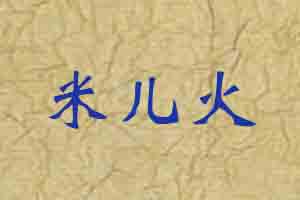Mid-Autumn Festival has a history of over 3,000 years, 1. (date) back to moon worship in the Shang Dynasty (1600–1046 BC). It’s 2. an important festival that many poems were written about it, stories and legends about the festival are widespread, and its origins have been guessed at and explained by generations of Chinese.
The term "Mid-Autumn" first appeared in the book Rites of Zhou (周礼), 3. (write) in the Warring States Period (475–221 BC). But the term only related to the time and season; the festival didn't exist at that point.
In the Tang Dynasty (618–907 AD), it was popular to appreciate the moon. Many poets liked to create poems related to the moon when appreciating it. There is a legend 4. Emperor Xuanzong of the Tang Dynasty visited the Moon Palace in his dream and heard a wonderful song.
In the Northern Song Dynasty (960–1127 AD), the 15th day of the 8th lunar month was established 5the "Mid-Autumn Festival". From then on, sacrificing to the moon was very popular, and 6 (become) a custom ever since.
To the Chinese, Mid-Autumn Festival means family reunion and peace. The festival is celebrated when the moon is believed 7. (be) the biggest and fullest. To the Chinese, a full moon is a symbol of prosperity, 8. (happy), and family reunion.Many traditional and meaningful celebrations are held in most households in China, and China's 9. (neighbor) countries. The main traditions and celebrations include eating mooncakes, having dinner with family, gazing 10.and worshipping the moon, and lighting lanterns.
1.dating 2.such 3.written4.that5 as 6 has become7.to be 8.happiness 9.neighboring 10.at
中秋节有三千多年历史,可以追溯到商代时对月亮的崇拜。因为中秋节的重要地位,历代诗人都会为中秋节写诗,关于中秋节的故事、传奇在民间广为流传,中秋节的起源也被历代中国人探究。“中秋”一词最早出现在战国时期《周礼》一书中,但是该词只和时间和季节有关,当时还没有中秋节。
唐代时赏月风靡,诗人在赏月之时佳作连连。据传,唐玄宗曾在梦中去往月宫并听到优美的歌声。北宋时期,农历八月十五才被正式确立为中秋节,从那以后,为月亮献祭盛行,从那以后便成为风俗。
对中国人来说,中秋节意味着团聚、平安。人们觉得,中秋节的月亮最大、最圆。满月象征着繁荣、幸福和团圆。大部分中国家庭以及中国的邻国都会举行许多传统的庆祝活动,主要庆祝方式包括吃月饼,吃团圆饭,赏月和点灯笼。

发表评论